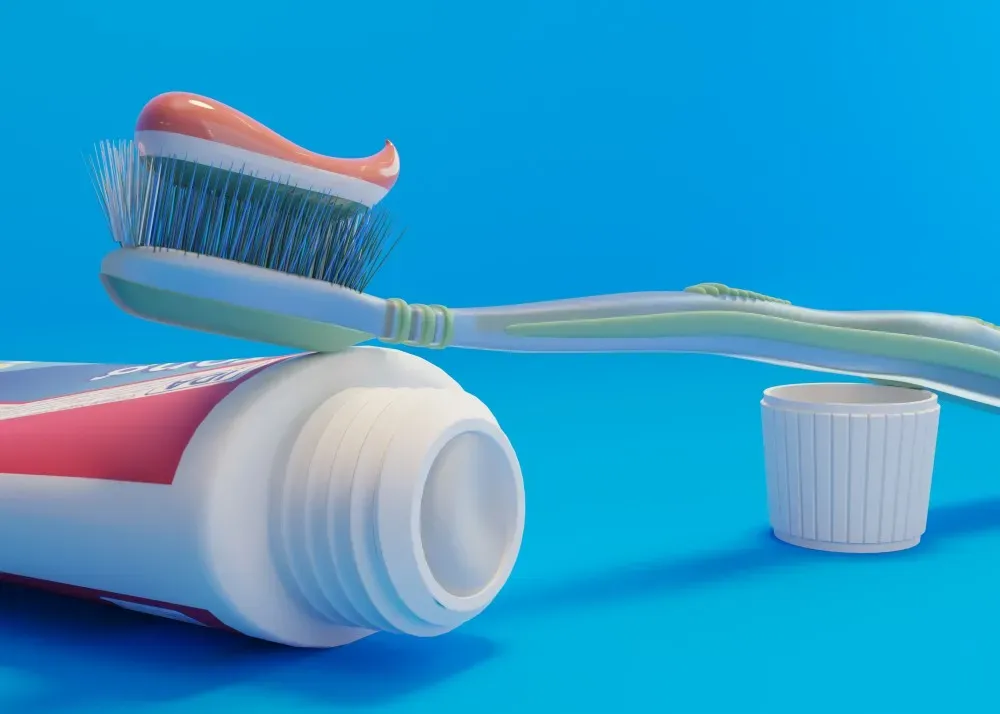Oral hygiene and professional cleaning
Staying on top of your oral hygiene is essential for your overall health, so choosing the right toothbrush and toothpaste is equally important. It’s easier than ever to get your teeth professionally cleaned if you’re looking for teeth whitening in the London area, however maintaining a good oral hygiene routine at home is arguably even more important. With so many options on the market, it can be daunting to decide what’s best for you. We’ve here to help you decide with this handy guide.
Choosing the Right Toothbrush
Manual Toothbrushes
Manual toothbrushes are a simple, budget-friendly option, widely available, and easy to use. There are a few things to consider when choosing one that suits you.
Bristles: Most dentists recommend soft bristles as these are slightly more gentle on your gums and enamel. Hard bristles can cause gum irritation and bleeding, and can wear down your enamel over time.
Head Size: A toothbrush with a small head can easily reach the back teeth and other hard-to-reach areas of your mouth.
Ergonomic Handle: Make sure to choose a model that is easy for you to grip, especially for children or older adults who may have reduced dexterity.
Electric Toothbrushes
Electric toothbrushes are an increasingly popular choice, and for good reason. They can be highly effective at removing plaque and can make the physical act of brushing your teeth easier, especially for those with limited mobility or certain medical conditions.
Timers: Many electric toothbrushes come with timers to ensure you brush for the recommended two minutes.
Multiple Modes: Some models offer different modes for sensitive teeth, whitening, or deep cleaning.
Oscillating vs. Sonic: Oscillating toothbrushes rotate back and forth, while sonic toothbrushes vibrate at a high frequency. Both are effective, with sonic brushes proving slightly more effective at removing plaque in hard-to-reach areas. Electric toothbrushes are particularly helpful for people with conditions such as arthritis, or have dental appliances like orthodontic braces, as they require less manual effort to clean thoroughly.
Which Toothpaste Should I Choose?
Toothpaste comes in various formulations and flavours, and different brands can target different effects such as whitening or fresh breath. Below are some of the more common types and what they offer
Fluoride Toothpaste
Fluoride is a key ingredient in most toothpaste, as it helps strengthen tooth enamel and prevent cavities. Unless your dentist advises otherwise, it’s a good idea to use fluoride toothpaste to protect against decay and other complications.
Whitening Toothpaste
If you’re looking for a brighter smile, whitening toothpaste may help remove surface stains caused by coffee, tea, or smoking. However, these formulas typically don’t change the natural color of your teeth and can be abrasive if overused.
Toothpaste for Sensitive Teeth
For those who experience sensitivity to hot, cold, or sweet foods, toothpaste designed for sensitive teeth can help. These products contain ingredients like potassium nitrate or stannous fluoride that help block pain signals and reduce sensitivity over time.
Natural Toothpastes
Some people prefer to keep their toothpaste natural and organic, which often excludes ingredients like sweeteners or foaming agents. While these toothpastes can be effective, make sure they contain fluoride unless otherwise directed by your dentist.
Tartar Control Toothpastes
If you’re prone to plaque or tartar buildup, these toothpastes can specifically target the formation of tartar, which can lead to gum disease. These products often contain antibacterial agents like triclosan to help fight plaque.
Choosing the right toothbrush and toothpaste is essential for maintaining a healthy oral hygiene routine. Whether you prefer a manual or electric toothbrush, make sure it fits comfortably in your hand and has soft bristles to protect your gums and enamel. When selecting toothpaste, consider your specific needs, such as cavity or tartar prevention, whitening, or sensitivity relief. Consulting with your dentist can also help you make the best decision based on your individual oral health.






